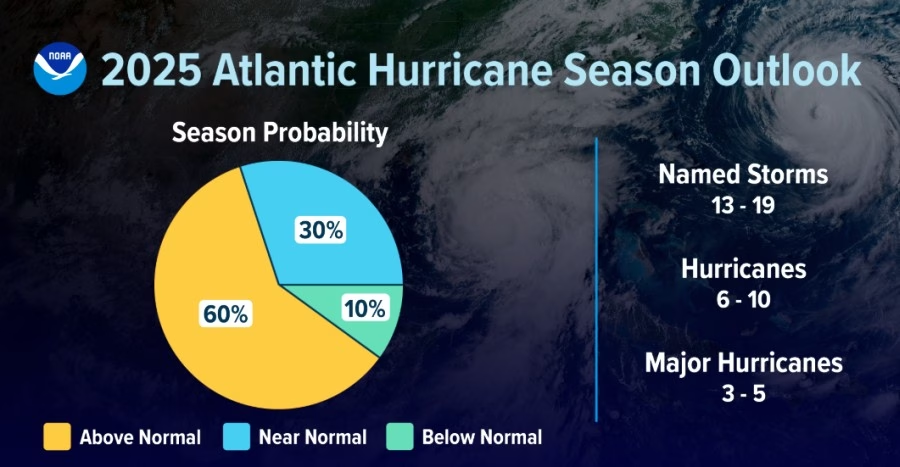
The 2025 Atlantic hurricane season is shaping up to be another active one, particularly for the Gulf of America, where warm ocean waters and favorable atmospheric conditions could fuel powerful storms. With NOAA’s early forecasts, lessons from past seasons, and increasing hurricane risks, residents along the Gulf Coast must take proactive steps to protect themselves and their property.
One of the most significant factors influencing the 2025 hurricane season is the unusually warm sea surface temperatures (SSTs) in the Gulf. Warmer waters provide more energy for tropical storms, increasing the likelihood of rapid intensification—where a storm strengthens quickly, sometimes within hours.
- The Gulf has seen record-high temperatures in recent years, contributing to stronger hurricanes.
- Early forecasts suggest that La Niña conditions may develop by late summer, reducing wind shear and allowing more storms to form and strengthen.
NOAA’s outlook for the 2025 Atlantic hurricane season, which goes from June 1 to November 30, predicts a 30% chance of a near-normal season, a 60% chance of an above-normal season, and a 10% chance of a below-normal season.

The agency is forecasting a range of 13 to 19 total named storms (winds of 39 mph or higher). Of those, 6-10 are forecast to become hurricanes (winds of 74 mph or higher), including 3-5 major hurricanes (category 3, 4 or 5; with winds of 111 mph or higher). NOAA has a 70% confidence in these ranges.
The early start to last year’s hurricane season (Hurricane Beryl in early July) serves as a reminder that preparation should begin well before peak season. This underscores the importance of:
- Monitoring forecasts early—don’t wait until a storm is in the Gulf to prepare.
- Understanding evacuation routes—know your zone and have a plan.
- Avoiding complacency—even weaker storms can bring devastating flooding and tornadoes.
Stay informed through NOAA, the National Hurricane Center, and local emergency agencies.
NATIONAL HURRICANE CENTER
https://www.nhc.noaa.gov/
ENTERGY STORM CENTER
https://www.entergynewsroom.com/storm-center/
GALVESTON COUNTY DISASTER GUIDE
“https://www.gcoem.org/




